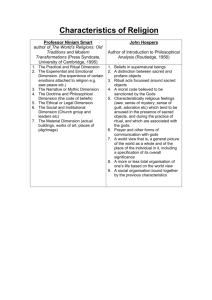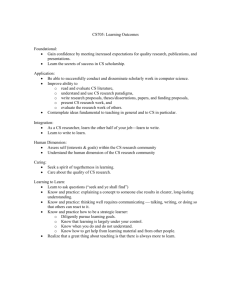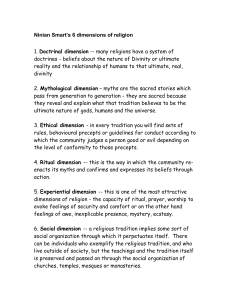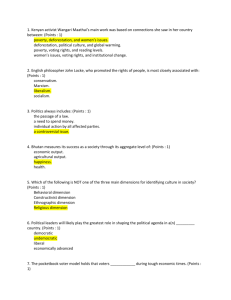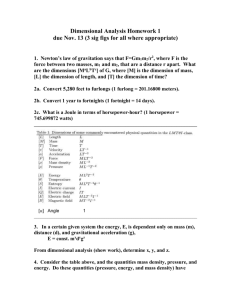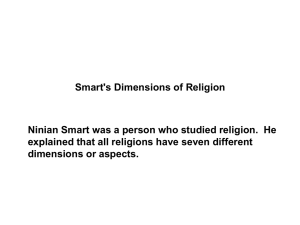The Six Dimensions of a Religious Tradition
advertisement
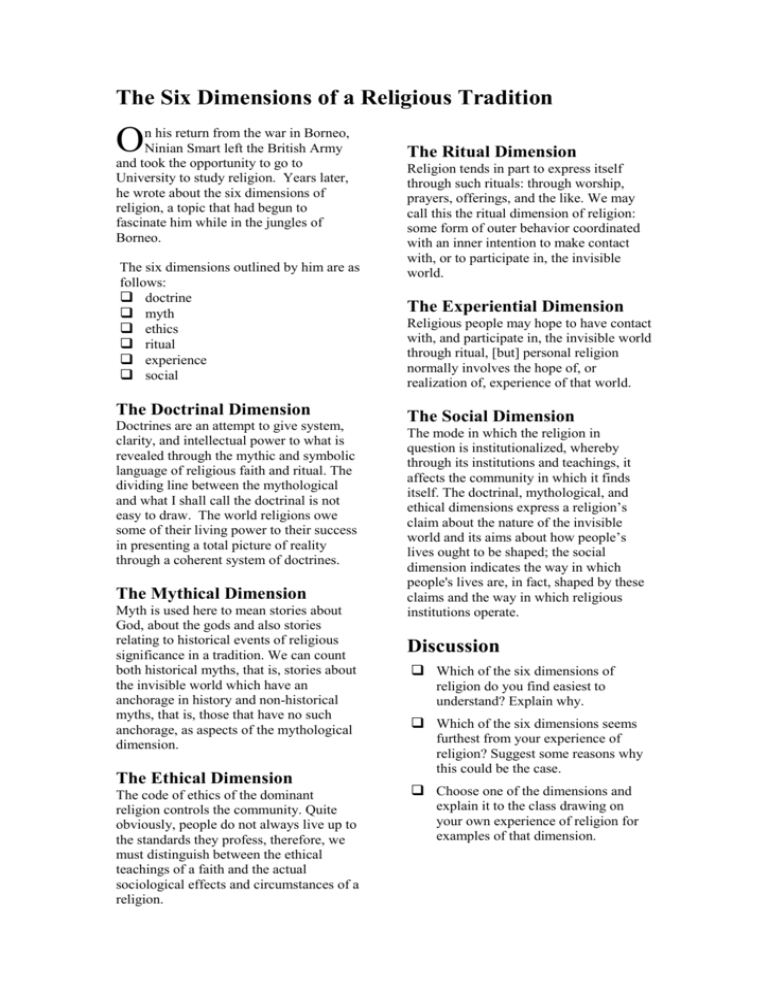
The Six Dimensions of a Religious Tradition O n his return from the war in Borneo, Ninian Smart left the British Army and took the opportunity to go to University to study religion. Years later, he wrote about the six dimensions of religion, a topic that had begun to fascinate him while in the jungles of Borneo. The six dimensions outlined by him are as follows: doctrine myth ethics ritual experience social The Doctrinal Dimension Doctrines are an attempt to give system, clarity, and intellectual power to what is revealed through the mythic and symbolic language of religious faith and ritual. The dividing line between the mythological and what I shall call the doctrinal is not easy to draw. The world religions owe some of their living power to their success in presenting a total picture of reality through a coherent system of doctrines. The Mythical Dimension Myth is used here to mean stories about God, about the gods and also stories relating to historical events of religious significance in a tradition. We can count both historical myths, that is, stories about the invisible world which have an anchorage in history and non-historical myths, that is, those that have no such anchorage, as aspects of the mythological dimension. The Ethical Dimension The code of ethics of the dominant religion controls the community. Quite obviously, people do not always live up to the standards they profess, therefore, we must distinguish between the ethical teachings of a faith and the actual sociological effects and circumstances of a religion. The Ritual Dimension Religion tends in part to express itself through such rituals: through worship, prayers, offerings, and the like. We may call this the ritual dimension of religion: some form of outer behavior coordinated with an inner intention to make contact with, or to participate in, the invisible world. The Experiential Dimension Religious people may hope to have contact with, and participate in, the invisible world through ritual, [but] personal religion normally involves the hope of, or realization of, experience of that world. The Social Dimension The mode in which the religion in question is institutionalized, whereby through its institutions and teachings, it affects the community in which it finds itself. The doctrinal, mythological, and ethical dimensions express a religion’s claim about the nature of the invisible world and its aims about how people’s lives ought to be shaped; the social dimension indicates the way in which people's lives are, in fact, shaped by these claims and the way in which religious institutions operate. Discussion Which of the six dimensions of religion do you find easiest to understand? Explain why. Which of the six dimensions seems furthest from your experience of religion? Suggest some reasons why this could be the case. Choose one of the dimensions and explain it to the class drawing on your own experience of religion for examples of that dimension.



